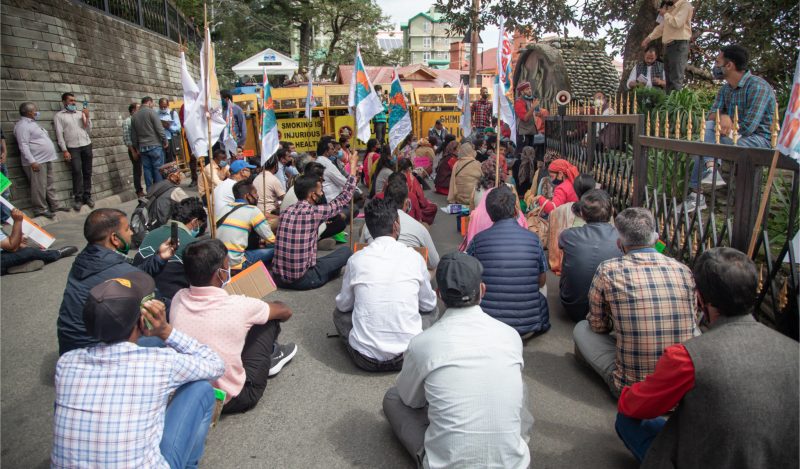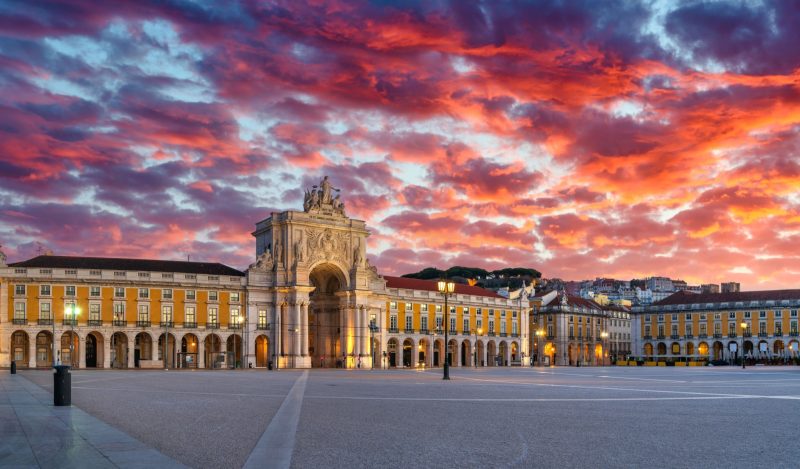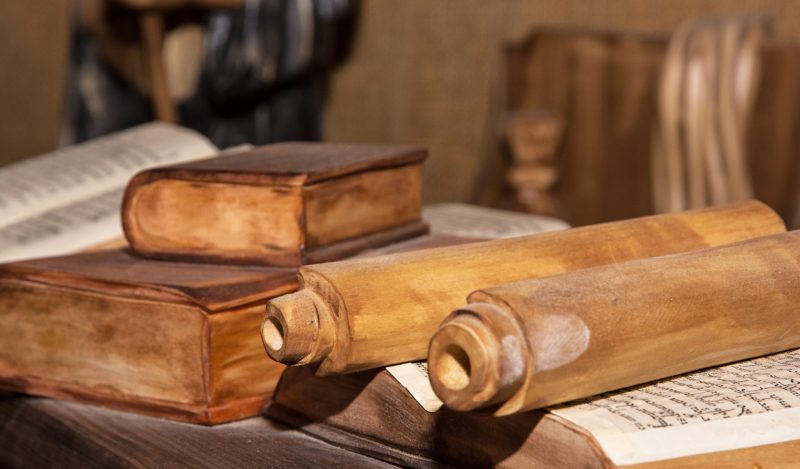If you test positive or refuse to be tested at all in New Zealand, prepare to be shipped out to a quarantine camp recently established by the government. Shocking, yes, but we have an analogous system in the US. If you test positive (which is not the same as actually being sick), you will be removed from school or forbidden from coming into the office. You could lose your job – or refused the opportunity to earn money.
In many places in the country and the world where you travel today, you are subject to quarantine unless you can present a clean Covid test. The same is happening with vaccines, with new edicts from governments that their cities will be disease free and no one unvaccinated will be allowed to enter buildings or eat in restaurants.
All these policies that stigmatize those perceived to be sick, excluding them from society, follow directly from a strange twist in Covid policies. We started presuming that many or even most people will get the disease but seeking only to slow the pace at which it spread. Over time, we began to attempt the impossible, namely to stop the spread altogether. In the course of it, we’ve set up systems that punish and exclude the sick, or at least relegate them to a second-class status (a Scarlet Letter C on their chest, as it were) while the rest of us wait for the virus to go away either through a vaccine or some mysterious process by which the bug goes into retirement.
What really is going on here? It is resurrecting what amounts to a pre-modern ethos of how society deals with the presence of infectious disease. It’s not clear whether this is by accident or not. That it is in fact happening is indisputable. We are hurling ourselves in fits and starts toward a new system of castes, created in the name of disease mitigation.
Every pre-modern society assigned to some group the task of bearing the burden of new pathogens. Usually, the designation of the unclean was assigned based on race, language, religion, or class. There was no mobility out of this caste. They were the dirty, the diseased, the untouchables. Depending on the time and place, they were segregated geographically, and the designation followed from generation to generation. This system was sometimes codified in religion or law; more commonly this caste system was baked into social convention.
In the ancient world, the burden of disease was assigned to people not born as “free;” that is, as part of the class permitted to participate in public affairs. The burden was borne by the workers, merchants, and slaves who mostly lived away from the city – unless the rich fled the cities during a pandemic. Then the poor suffered while the feudal lords went to their manors in the country for the duration, forcing the burden of burning out the virus on others. From a biological perspective, they served the purpose of operating like sandbags to keep those in city free of disease. Pathogens were something to be carried and absorbed by them and not us. The elites were invited to look down on them, even though it was these people – the lower castes – who were operating as the biological benefactors of everyone else.
In religious teaching, the classes designated as sick and unclean were also considered unholy and impure, and everyone was invited to believe that their sickness was due to sin, and thus it is correct that we should exclude them from holy places and offices. We read in Leviticus 21:16 that God ordained that “Whosoever he be of thy seed in their generations that hath any blemish, let him not approach to offer the bread of his God. For whatsoever man he be that hath a blemish, he shall not approach: a blind man, or a lame, or he that hath a flat nose, or anything superfluous, or a man that is brokenfooted, or brokenhanded, or crookback, or a dwarf, or that hath a blemish in his eye, or be scurvy, or scabbed, or hath his stones broken.”
When Jesus came to heal the sick and the lepers in particular, it was not only an impressive miracle in itself; it was also something of a social and political revolution. His powers to heal freely moved people from one caste to another merely by removing the stigma of disease. It was an act imparting social mobility in a society that was very happy to do without. St. Mark 1:40 records not only a medical act but a social one: “And Jesus, moved with compassion, put forth his hand, and touched him, and saith unto him, I will; be thou clean. And as soon as he had spoken, immediately the leprosy departed from him, and he was cleansed.” And for doing that, Jesus was expelled: he “could no more openly enter into the city, but was without in desert places.”
(This is also why Mother Teresa’s work in the slums of Calcutta was so politically controversial. She was seeking to care for and heal the unclean as if they are just as deserving of health as everyone else.)
It was not until the early 20th century that we understood the brutal scientific intuition behind these cruel systems. It comes down to the need for the human immune system to adapt to new pathogens (there has been and always will be new pathogens). Some people or most people have to take the risk of getting sick and acquiring immunity in order to move a virus from the status of epidemic or pandemic to become endemic; that is, predictably manageable. By the time the pathogen reaches the ruling class, it becomes less life-threatening. The lower classes in this system operate as the tonsils or kidneys in the human body: taking on the disease to protect the rest of the body and finally to expel it.
Humanity constructed these caste systems of disease for all of recorded history until very recently. Slavery in the United States served that very purpose in part: let those who do the work also bear the burden of sickness so that the ruling class of slave owners can remain clean and well. Marli F. Weiner’s painful book Sex, Sickness, and Slavery: Illness in the Antebellum South explains how slaves, owing to the lack of medical care and less sanitary living conditions, bore the burden of sickness far more than whites, which in turn invited the defenders of slavery to postulate intractable biological differences that made slavery a natural state of humankind. Health belonged to the elites: observe it with your own eyes! Disease is for them and not us.
The great turn from ancient political and economic structures into more modern ones was not only about property rights, commercial freedoms, and the participation of ever greater waves of people in public life. There was also an implicit epidemiological deal to which we agreed, what Sunetra Gupta describes as an endogenous social contract. We agreed that we would no longer designate one group as the unclean and force them to bear the burden of herd immunity so that the elites do not have to. The ideas of equal freedom, universal dignity, and human rights came with a public health promise too: we will no longer regard one people as fodder in a biological war. We will all participate in building resistance to disease.
Martin Kulldorff speaks of the need for an age-based system of focused protection. When the new pathogen arrives, we protect the vulnerable with weak immune systems while asking the rest of society (the less vulnerable) to build immunity to the point where the pathogen becomes endemic. Think about what that category of age implies about the social order. All people grow old, regardless of race, language, social position, or profession. Everyone is thus permitted to enter into the category of the protected. We use intelligence, compassion, and high ideals to shelter those who need it most and for as short a period of time as possible.
By now you can guess the thesis of this reflection. The lockdowns have reverted us back in time from a system of equality, freedom, and intelligence and plunged us back into a feudal system of castes. The ruling class designated the working classes and the poor as the groups that would need to get out there, work in the factories, warehouses, fields, and packing plants, and to deliver our groceries and supplies to our front door. We called these people “essential” but we really meant: they will build immunity for us while we wait in our apartments and hide from the disease until the infection rate falls and it is safe for us to go out.
As an homage to the new unclean, and in consideration of the nice things they are doing for us, we will pretend to participate in their plight through perfunctory performances of disease mitigation. We will dress down. We will avoid revelry. And we will wear a mask in public. Very conveniently for the professional class, these little performances are also consistent with the underlying motivation of staying away from the bug and letting others grapple with gaining immunity.
The poor and the working class are the new unclean, while the professional class enjoys the luxury of waiting the pandemic out, interacting only with disease-free laptops. The Zoom call is the 21st century equivalent of the manor estate on the hill, a way to interact with others while avoiding the virus to which the people who keep the goods and services flowing must necessarily be exposed. These attitudes and behaviors are elitist and ultimately selfish, even vicious.
As for age-based protection, our leaders achieved the opposite. First, they forced Covid-19 patients into long-term care facilities, causing the pathogen to spread where it was least welcome and most dangerous, and, second, they prolonged the period of isolation for the survivors by delaying the onset of herd immunity in the rest of the population, spreading loneliness and despair among the elderly.
Lockdowns are the worst of all worlds from the perspective of public health. More than that, lockdowns represent a repudiation of the social contract we long ago made in order to deal with infectious diseases. We worked for centuries to reject the idea that some group – some caste – should be permanently assigned the role of getting sick so that the rest of us can persist in an immunologically virginal state. We abolished the systems that entrenched such brutality. We decided that this is radically inconsistent with every civic value that built the modern world.
By reinstating ancient forms of exclusion, disease assignment or avoidance based on class, and social stigma of the sick, and now vaccine status, the lockdowners have created an astonishing pre-modern catastrophe.
There is more to The Great Barrington Declaration than a simple statement of cell biology and public health. It is also a reminder of a deal that modernity made with infectious diseases: despite their presence, we will have rights, we will have freedoms, we will have universal social mobility, we will include not exclude, and we will all participate in making the world safe for the most vulnerable among us, regardless of arbitrary conditions of race, language, tribe, or class.
Republished from aier.
Published under a Creative Commons Attribution 4.0 International License
For reprints, please set the canonical link back to the original Brownstone Institute Article and Author.









